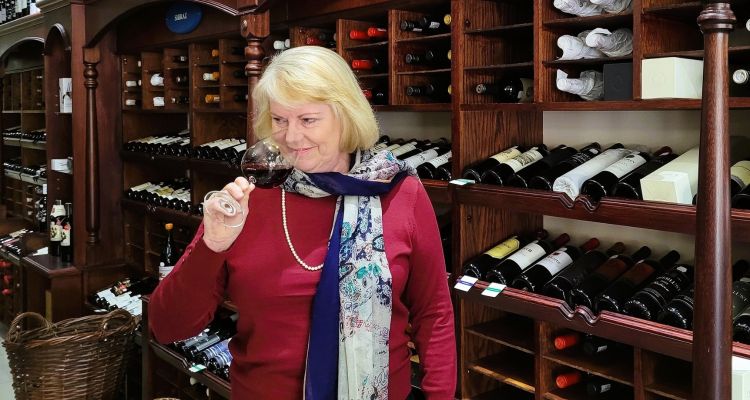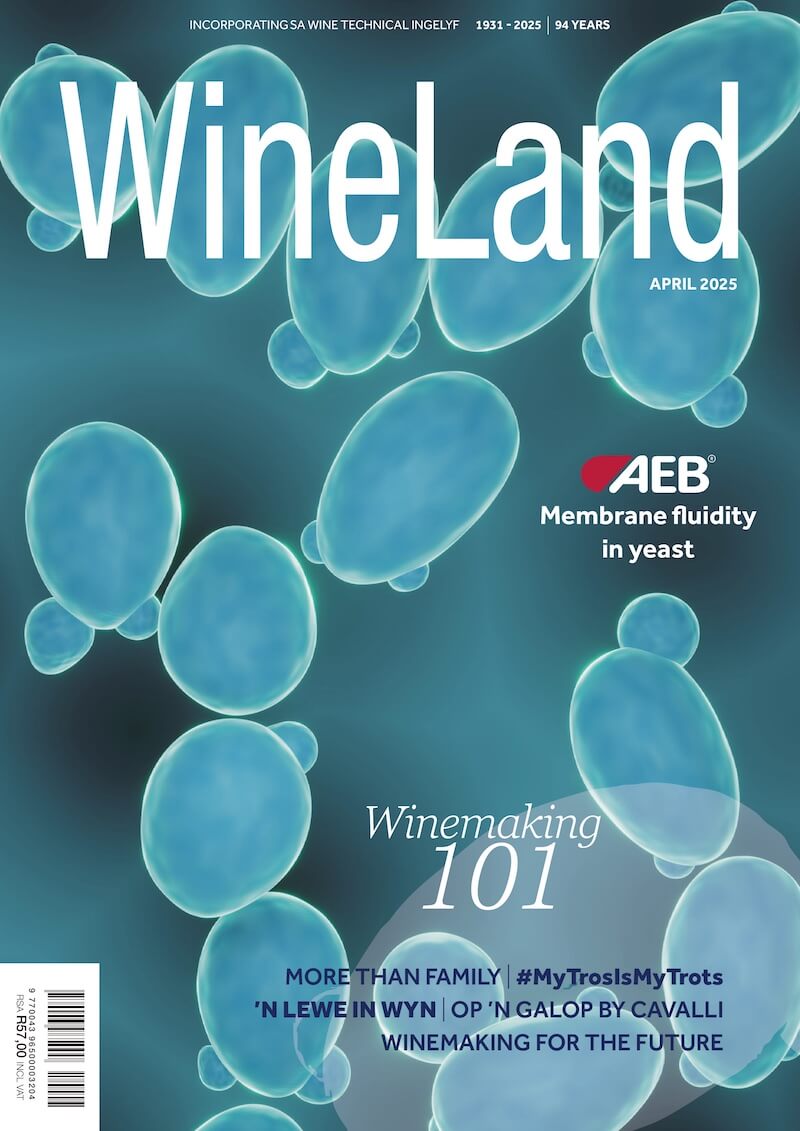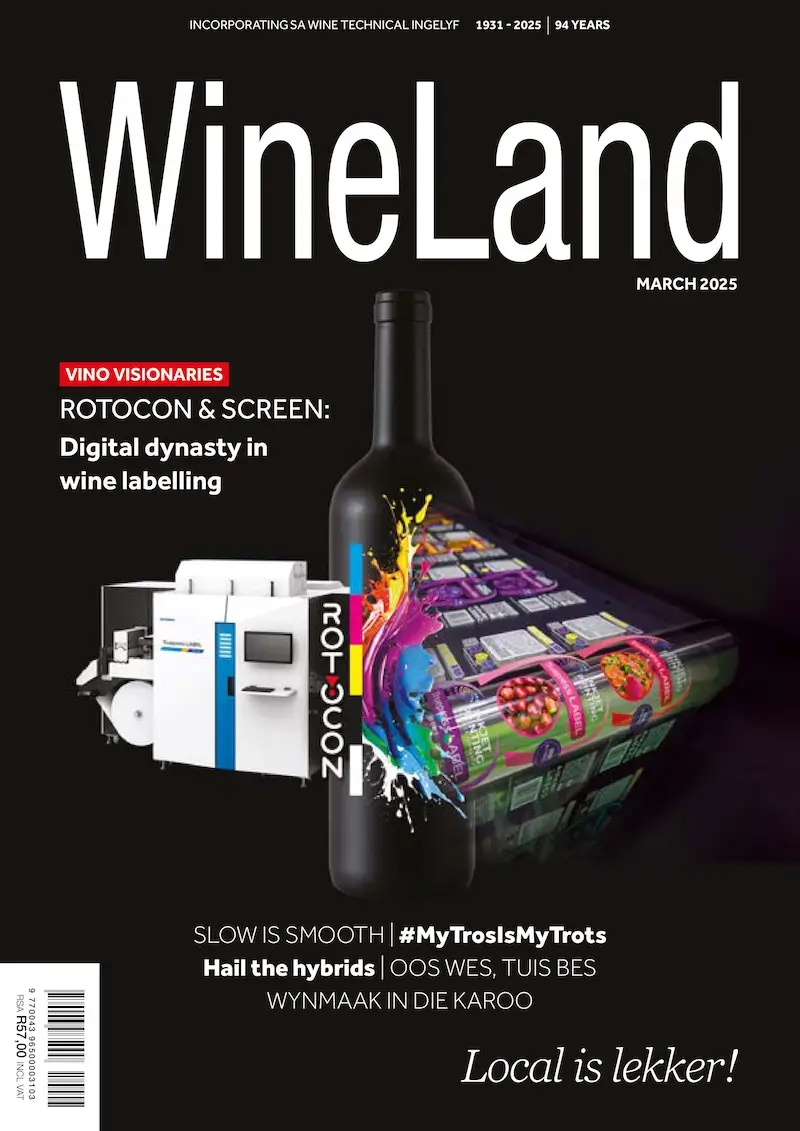The world is facing a water scarcity crisis. Agriculture uses nearly 70% of global freshwater, making the industry extremely vulnerable to water stress. Netafim recently hosted a media day to highlight its various innovations in irrigation in order to help producers be more ‘water-efficient’ and grow more with less.
Facts about increasing water scarcity, unpredictable rainfall, declining water quality and poor water management have been dominating conversations about food security, the future of agriculture and irrigated agriculture.
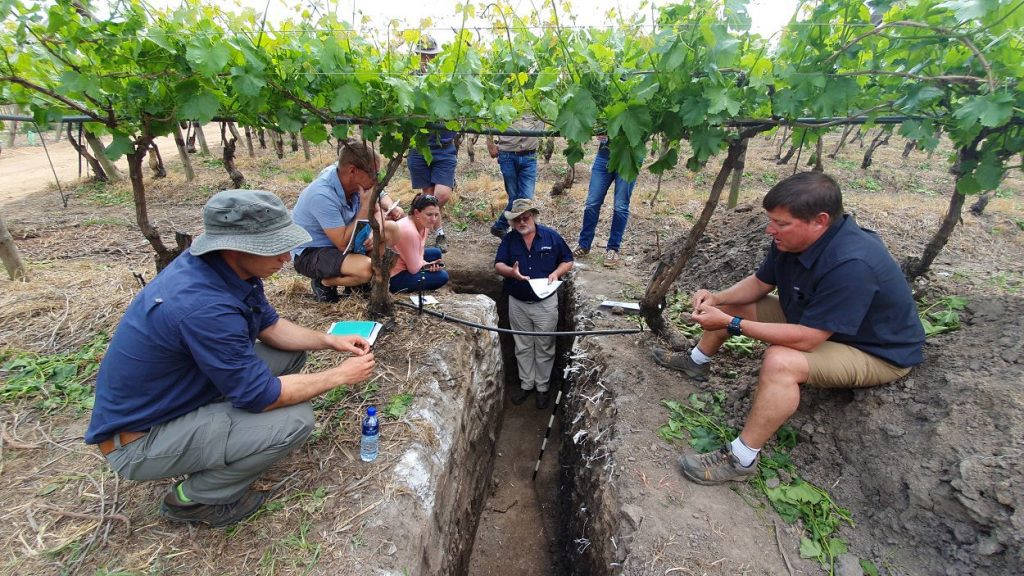
Netafim agronomy manager Chris Malan, explains drip irrigation to a media group.
The water scarcity picture is painted globally and there is increasing pressure on the global agricultural industry to use less water.
In South Africa, the Creamer Media Water Report of August 2021 predicts that water demand will exceed supply by 17% in 2030 and even more in the years thereafter. This will be driven by increased water demand in the municipal, industrial and agricultural sectors.
The report further reminds us that the South African agricultural sector, at 62%, is the country’s biggest water user. This statement is shared in the context of the importance of the industry to the economy, job creation and food security.
A lot can be said about poor municipal water management and wasted water in other industries, but the fact remains that the agricultural industry has a definite responsibility to handle the water it has access to with care through more efficient irrigation.
Agriculture is challenged to produce more with less – to feed the rapidly growing population with limited resources whilst protecting the environment for future generations.
Efficient irrigation is not only about using water responsibly, but also about the vital task of ensuring food security and sustainability across the globe.
With massive competition for water-use between industries, the pressure on the agricultural industry to use less water is bound to increase. Agriculture must become increasingly purposeful and efficient in the way water is used.
The pressure is on farmers, but fortunately, they are not alone and solutions exist to handle this pressure. All role-players, including government, industry, academia, and organised agriculture must work together in reaction to this call.
A variety of irrigation methods exist, each with a different level of efficiency and different advantages and disadvantages. Precision irrigation methods can ensure that the maximum is gained from every drop of water used in agriculture, supporting the industry in its effort to use water with more purpose and efficiency.
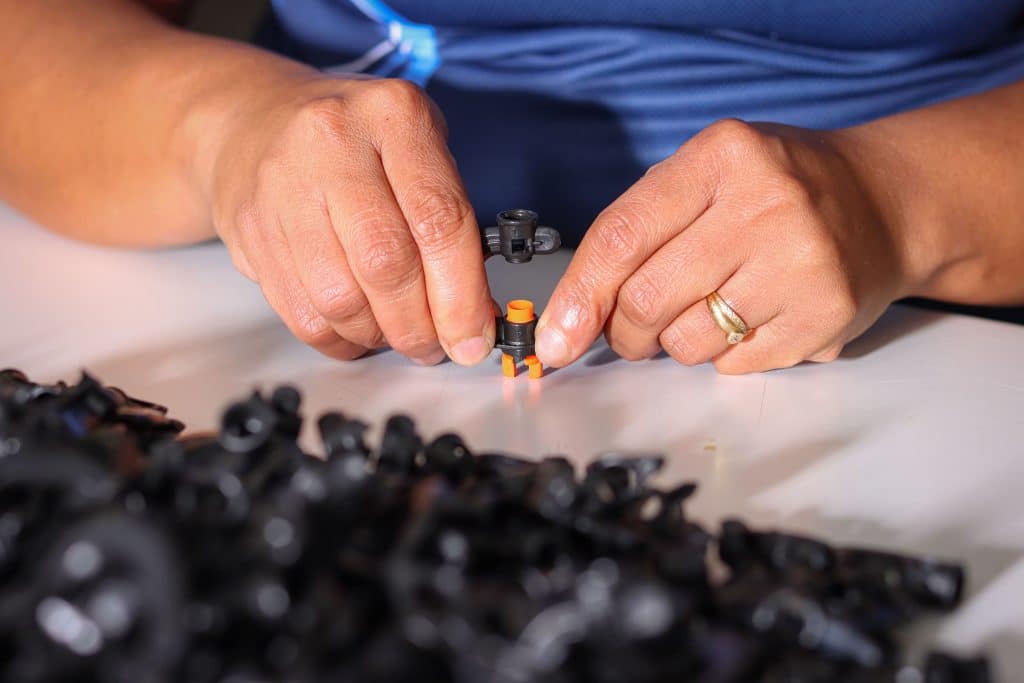
Members of media glimpsed the science and precision behind the manufacturing of Netafim’s irrigation technology at its factory in Kraaifontein, Western Cape.
As an industry, we cannot leave it to farmers to fight the water scarcity battle alone. Their effort can only be fruitful if government tightens water regulation and improves water management, distribution and storage, if industry supports them with tools and knowledge and if all water users use water sparingly.
If we are not proactive now to manage our water resources sustainably, dire consequences will follow. Water scarcity poses a risk to our social order, food and economic security and ultimately human existence. We believe that we can only take the lead in this regard as a united industry.
Massive value lies in strategic partnerships among agribusinesses to ensure sustainable agriculture. We must dare to partner for success to make it happen and finally create an impact.
Why precision irrigation?
The offer made by precision irrigation is clear: Achieve higher yields while saving time and money by delivering the correct amount of water and nutrients at the correct time and in the right place with no waste. This promise is made independent of the topography, climate, and many other factors.
Experience has shown that precision irrigation massively contributes to both water-use and fertiliser-use efficiency. It can save up to 50% in water usage and 30% in fertiliser usage, while increasing crop productivity by between 30 and 50%. It also leads to significantly reduced labour and energy costs.
Nearly a third of South Africa’s agricultural production depends on irrigation. The irrigation type mix has changed significantly over the past 50 years alongside a drastic increase of hectares under irrigation. This trend is shown and predicted to continue in the 2019-graph below shared by Felix Reinders.
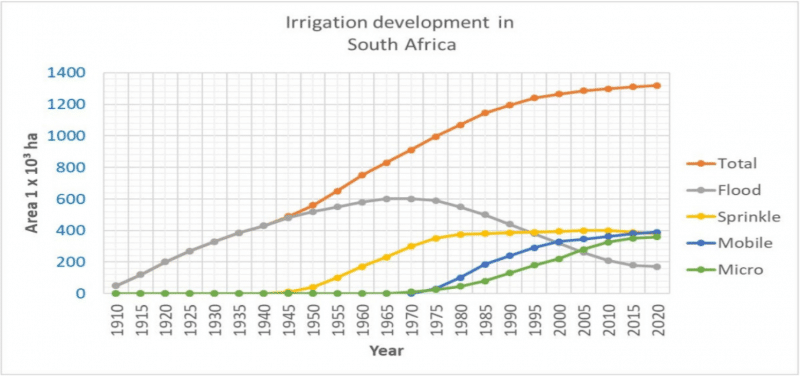
Projection of utilisation tendencies of different irrigation methods (Reinders, 2019).
The adoption of precision irrigation is on the rise. The mass adoption of precision irrigation
is however not yet a reality. Netafim wants to change that. The impact on food security, the environmental impact of agriculture and farmer livelihoods can be massive.
“We know that there is still a long way to go, hence our commitment to drive this adoption, by sharing expertise and supplying quality products,” says Netafim’s newly-appointed managing director Adriaan de Lange.
The Netafim purpose: More with less
Netafim’s purpose is to advance life around the world by helping farmers grow more with less. How? By driving the mass adoption of precision irrigation and providing innovative precision irrigation solutions. Why? To fight water, land, and food scarcity.
As a global leader in precision irrigation, Netafim believes in having a greater responsibility to ensure that
water is used as efficiently as possible in agriculture around the globe.
On local soil, Netafim South Africa is working hard to affect the adoption of smart irrigation across the Southern African region. The company has the privilege to share the lessons learnt in the often-challenging African conditions with its colleagues across the globe.
This means that the rest of the world can also learn from the lessons they learn and that product innovation can be influenced by producers’ needs.
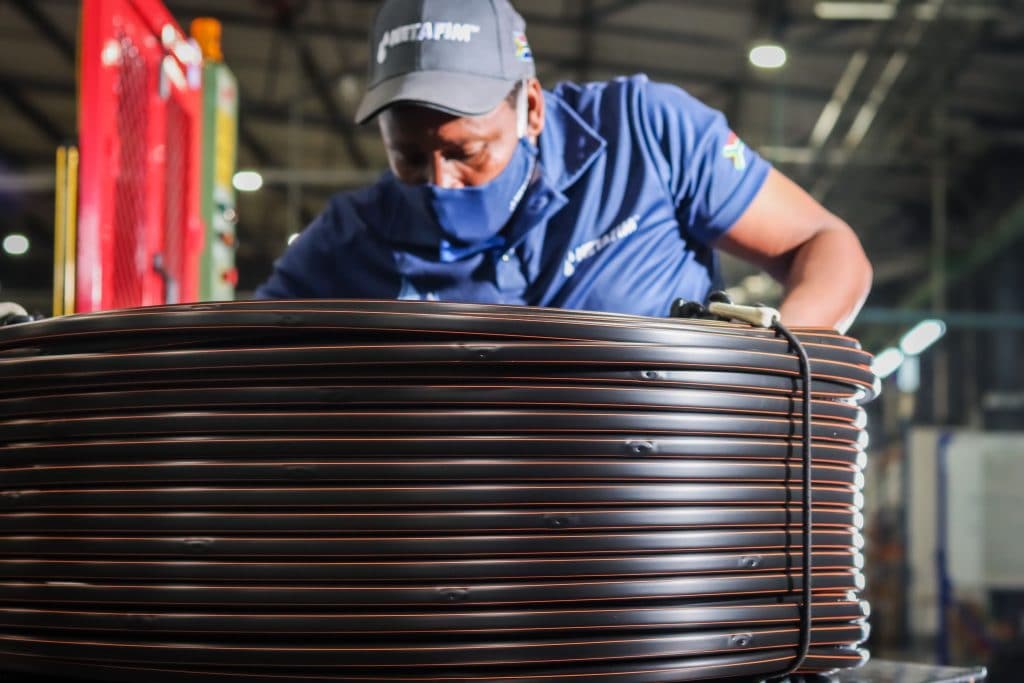
Netafim source only the best raw material for the manufacturing of its irrigation pipes.
Netafim believes that the drive for mass adoption of precision irrigation must be about much more than the provision of precision irrigation solutions. “Our belief is that success will depend on several factors: products, people, partnerships, and knowledge,” says De Lange.
“We are therefore called to share knowledge with farmers and all role players in the irrigation and wider agricultural industry. Even the best products will not lead to success if they are not applied, operated, and maintained correctly and if the user is not supported with knowledge.”
Netafim’s field team is strategically positioned to ensure that products can be implemented with optimal success through the expertise of employees in combination with years of accumulated knowledge. The Netafim sales team is structured as technical advisors, rather than sales consultants.
“We sell our products through a widespread retail network, while the agronomy and technical support teams offer unique support in the field. This is to ensure that every end-user of a Netafim product on any farm has access to the expertise to apply our quality products for maximum return on investment,” De Lange comments.
To add further value, a Netafim services solution is currently in development that will support the optimal implementation and maintenance of precision irrigation solutions in the field. More will be communicated about Netafim Services in due course.
Netafim: Irrigation Innovation
Innovative thinking leads to new practices that require new technology. Consequently, innovative irrigation technology is born. Conversely, when new technology is developed, it creates space for innovative thinking and new practices. In other words, innovation breeds innovation.
In the irrigation industry great potential for innovation lies not only in product development, but also in changing how we think about irrigation and finding new practices – changing the way we use both existing and new technologies to grow more with less.
Netafim prides itself in playing a crucial role in the development of irrigation knowledge and trends in the various South African agricultural industries. This role is supported by the fact that, according to De Lange, the company “truly understands the challenges faced by clients and end-users.”
“Our approach is to support research that could improve the farmer’s position, assist in disseminating this research as well as actively taking part in on-farm irrigation research and developing new irrigation concepts.,” says De Lange.
- Wikus Strauss, owner of Seven Growers in Franschhoek, and Netafim technical advisor Mias Borcherds.
Netafim uses its presence on farms across the country and its network to ensure that any knowledge gained travels through the entire value chain. Co-operation with producers, organisations and academia locally and internationally has led to seven on-farm research projects currently in progress to investigate various soil physical, soil chemical and plant response aspects related to new irrigation technologies and concepts.
“With our roots in innovation, the importance of innovation has been deeply ingrained in Netafim’s culture and DNA.”
For more than 50 years, Netafim has been the leader in drip irrigation and other smart irrigation solutions. Some of the many irrigation solutions pioneered by the global Netafim team include:
- Low flow dripper technology
- Pressure-compensating dripper technology
- The turbulent dripper flow paths (implemented in advanced drippers to lower risk of clogging)
- New standards of irrigation filtration
On local soil as well, a lot of effort is put into product innovation as is evident in the recent local development of the NutriDoser range of fertigation units and a water meter monitoring platform.
“The continuous development of our existing solutions as well as the innovation of new solutions ensure that our contribution to an advanced agricultural industry does not end with the invention of drip irrigation.”
According to De Lange, It’s important that theory is brought to farm level, through trials, field support and more. “Netafim products installed in fields, orchards and vineyards can be relied on to deliver water and nutrients accurately and uniformly, season after season.”
The impact of innovative technologies becomes even greater as increased research is being done and Netafim’s understanding of water movement and distribution under continuous drip irrigation, knowledge of irrigation depth, understanding of the impact of tree stress, and more, expands. This will allow the irrigation industry to continue to play a major role in the growth of the various crop industries.
The Netafim impact
This year, Netafim South Africa will celebrate 30 years of leading the implementation of precision irrigation in the Southern African irrigation industry. The company has not only offered innovative solutions but have played an active role in developing industry knowledge.
“We are looking forward to celebrating the past, but our celebrations will also focus on looking to the future and the impact we can have in the next 30 years. Keep an eye on our communication platforms for more about these celebrations,” states De Lange.
Netafim South Africa is one of 33 Netafim business units present in 110 countries, as part of a wide network of precision irrigation expertise around the world.
In its 30th year, Netafim South Africa is in a phase of growth and change, with several additions to its team, including a new managing director, Adriaan de Lange, who took over the reins from Etienne Erasmus as he enters retirement.
Netafim builds its success on its quality products, the expertise of its employees, customer partnerships knowledge and experience. All its actions are built around these pillars and are aimed at helping the farmer grow more with less. Netafim is part of the Orbia Group.
To buy your latest copy, or subscribe to WineLand Magazine, click here.
- Charl van Reenen (agronomist), Adriaan De Lange (incoming MD) and Etienne Erasmus (outgoing MD).





